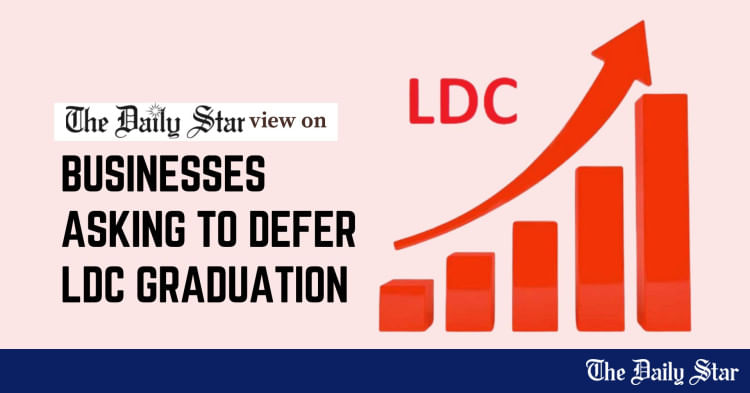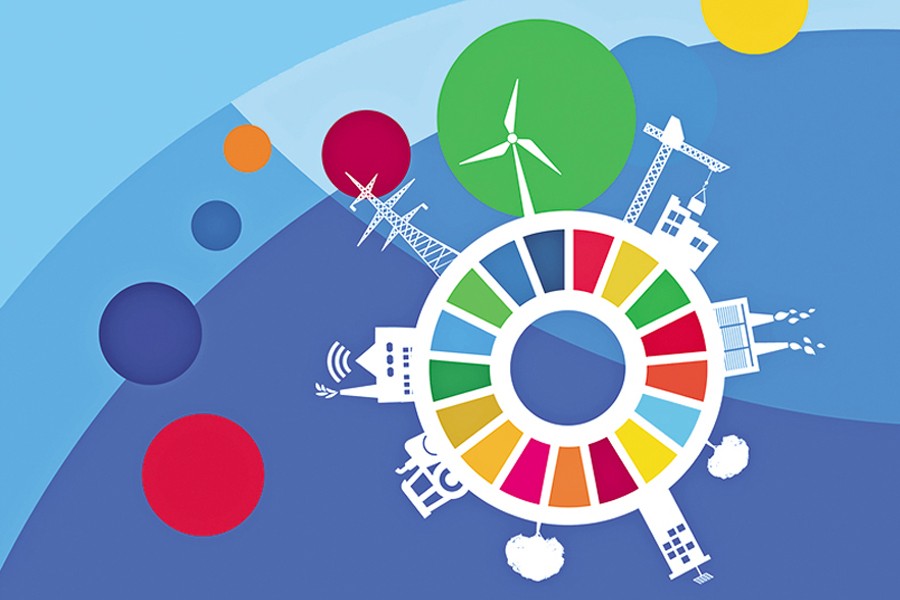Saif
Senior Member
- Messages
- 17,462
- Likes
- 8,403
- Nation

- Residence

- Axis Group


Wahiduddin stresses FTAs for successful LDC graduation
Planning Adviser Dr Wahiduddin Mahmud has highlighted the need for free-trade agreements (FTAs) among the member- countries of the Bay of Bengal Initiative for Multi-Sectoral Technical and Economic Cooperation (BIMSTEC). Addressing a programme marking BIMSTEC's 28th founding anniversary in the cap
BIMSTEC 28th founding anniversary
Wahiduddin stresses FTAs for successful LDC graduation
FE REPORT
Published :
Jun 18, 2025 08:28
Updated :
Jun 18, 2025 08:28

Planning Adviser Dr Wahiduddin Mahmud has highlighted the need for free-trade agreements (FTAs) among the member- countries of the Bay of Bengal Initiative for Multi-Sectoral Technical and Economic Cooperation (BIMSTEC).
Addressing a programme marking BIMSTEC's 28th founding anniversary in the capital on Monday evening, he pointed out that Bangladesh needs FTAs with BIMSTEC members as well as other countries for a smooth transition to the post-least- developed-country (LDC) graduation period.
He also stressed seamless multimodal connectivity among BIMSTEC members, saying it is a pre-condition for trade and investment promotion, people-to-people contacts, and energy cooperation, which are facilitators for economic development.
"Bangladesh remains strongly committed to advancing regional economic integration as a lead country in the trade, investment and development sector, including the blue economy," he added.
Reaffirming Bangladesh's commitment to regional cooperation, he expressed confidence in BIMSTEC's potential to become a dynamic and result-oriented organisation that delivers tangible benefits to its people.
BIMSTEC was established on June 6, 1997, through the signing of the Bangkok Declaration.
Fisheries and Livestock Adviser Farida Akhter, secretaries and officials of the government of Bangladesh, ambassadors and high commissioners, heads of international organisations, members of the diplomatic corps, media personnel, representatives of think tanks, and members of the BIMSTEC Secretariat attended Monday's event.
Welcoming the guests, BIMSTEC Secretary General Indra Mani Pandey noted that BIMSTEC, since its inception, has made significant progress in forging regional cooperation in various sectors.
It has succeeded in creating the institutional framework that it needs to function as an efficient and effective regional organisation, he said.
Besides, it has its own charter and well-established core and sectoral mechanisms, including senior officials meetings, ministerial meetings, and summits, he said.
Reflecting on BIMSTEC's 28-year journey, Mr Pandey highlighted the significant outcomes of the 6th BIMSTEC Summit held in Bangkok in April this year.
He said at the summit, BIMSTEC leaders, apart from their comprehensive summit declaration, adopted BIMSTEC Bangkok Vision 2030, providing a roadmap for building a prosperous, resilient, and open BIMSTEC.
They proposed a number of steps to enhance regional cooperation under BIMSTEC, he also said.
In addition to signing and adopting the Agreement on Maritime Transport Cooperation, memoranda of understanding between BIMSTEC and its developmental partners, the Indian Ocean Rim Association, and the United Nations Office on Drugs and Crime were also inked.
As part of the anniversary celebration, BIMSTEC member states showcased the cultural "unity in diversity" of the Bay of Bengal region by presenting their dance performances, exhibiting artefacts and other unique and symbolic items, and the march past, with the representatives proudly carrying their national flags in a symbolic display of unity and solidarity among member states.
Since September 2014, the BIMSTEC Secretariat located in Dhaka has been committed to supporting the member states to implement the decisions made by the leaders.
At Monday's programme, the organisation's secretary general conveyed that the BIMSTEC Secretariat was immensely grateful to the government of Bangladesh for hosting the Secretariat and providing it with all the necessary support.
He said the BIMSTEC Secretariat was also grateful to the embassies and high commissions of the BIMSTEC member states in Dhaka for their continued cooperation, including the organisation of the reception.
The celebration reaffirmed in a unique way BIMSTEC's growing importance as a regional platform for the realisation of the goals of peace, prosperity, and development in the Bay of Bengal region.
It also reflected the commitment of the member states to the organisation's success.
BIMSTEC comprises seven countries of the Bay of Bengal region - Bangladesh, Bhutan, India, Myanmar, Nepal, Sri Lanka, and Thailand.
It pursues regional cooperation in seven broad sectors - agriculture and food security; connectivity; environment and climate change; people-to-people contact; science, technology and innovation; security; and trade, investment and development.
The cooperation also covers eight sub-sectors - blue economy, mountain economy, energy, disaster management, fisheries and livestock, poverty alleviation, health, and human resource development.
Wahiduddin stresses FTAs for successful LDC graduation
FE REPORT
Published :
Jun 18, 2025 08:28
Updated :
Jun 18, 2025 08:28
Planning Adviser Dr Wahiduddin Mahmud has highlighted the need for free-trade agreements (FTAs) among the member- countries of the Bay of Bengal Initiative for Multi-Sectoral Technical and Economic Cooperation (BIMSTEC).
Addressing a programme marking BIMSTEC's 28th founding anniversary in the capital on Monday evening, he pointed out that Bangladesh needs FTAs with BIMSTEC members as well as other countries for a smooth transition to the post-least- developed-country (LDC) graduation period.
He also stressed seamless multimodal connectivity among BIMSTEC members, saying it is a pre-condition for trade and investment promotion, people-to-people contacts, and energy cooperation, which are facilitators for economic development.
"Bangladesh remains strongly committed to advancing regional economic integration as a lead country in the trade, investment and development sector, including the blue economy," he added.
Reaffirming Bangladesh's commitment to regional cooperation, he expressed confidence in BIMSTEC's potential to become a dynamic and result-oriented organisation that delivers tangible benefits to its people.
BIMSTEC was established on June 6, 1997, through the signing of the Bangkok Declaration.
Fisheries and Livestock Adviser Farida Akhter, secretaries and officials of the government of Bangladesh, ambassadors and high commissioners, heads of international organisations, members of the diplomatic corps, media personnel, representatives of think tanks, and members of the BIMSTEC Secretariat attended Monday's event.
Welcoming the guests, BIMSTEC Secretary General Indra Mani Pandey noted that BIMSTEC, since its inception, has made significant progress in forging regional cooperation in various sectors.
It has succeeded in creating the institutional framework that it needs to function as an efficient and effective regional organisation, he said.
Besides, it has its own charter and well-established core and sectoral mechanisms, including senior officials meetings, ministerial meetings, and summits, he said.
Reflecting on BIMSTEC's 28-year journey, Mr Pandey highlighted the significant outcomes of the 6th BIMSTEC Summit held in Bangkok in April this year.
He said at the summit, BIMSTEC leaders, apart from their comprehensive summit declaration, adopted BIMSTEC Bangkok Vision 2030, providing a roadmap for building a prosperous, resilient, and open BIMSTEC.
They proposed a number of steps to enhance regional cooperation under BIMSTEC, he also said.
In addition to signing and adopting the Agreement on Maritime Transport Cooperation, memoranda of understanding between BIMSTEC and its developmental partners, the Indian Ocean Rim Association, and the United Nations Office on Drugs and Crime were also inked.
As part of the anniversary celebration, BIMSTEC member states showcased the cultural "unity in diversity" of the Bay of Bengal region by presenting their dance performances, exhibiting artefacts and other unique and symbolic items, and the march past, with the representatives proudly carrying their national flags in a symbolic display of unity and solidarity among member states.
Since September 2014, the BIMSTEC Secretariat located in Dhaka has been committed to supporting the member states to implement the decisions made by the leaders.
At Monday's programme, the organisation's secretary general conveyed that the BIMSTEC Secretariat was immensely grateful to the government of Bangladesh for hosting the Secretariat and providing it with all the necessary support.
He said the BIMSTEC Secretariat was also grateful to the embassies and high commissions of the BIMSTEC member states in Dhaka for their continued cooperation, including the organisation of the reception.
The celebration reaffirmed in a unique way BIMSTEC's growing importance as a regional platform for the realisation of the goals of peace, prosperity, and development in the Bay of Bengal region.
It also reflected the commitment of the member states to the organisation's success.
BIMSTEC comprises seven countries of the Bay of Bengal region - Bangladesh, Bhutan, India, Myanmar, Nepal, Sri Lanka, and Thailand.
It pursues regional cooperation in seven broad sectors - agriculture and food security; connectivity; environment and climate change; people-to-people contact; science, technology and innovation; security; and trade, investment and development.
The cooperation also covers eight sub-sectors - blue economy, mountain economy, energy, disaster management, fisheries and livestock, poverty alleviation, health, and human resource development.






